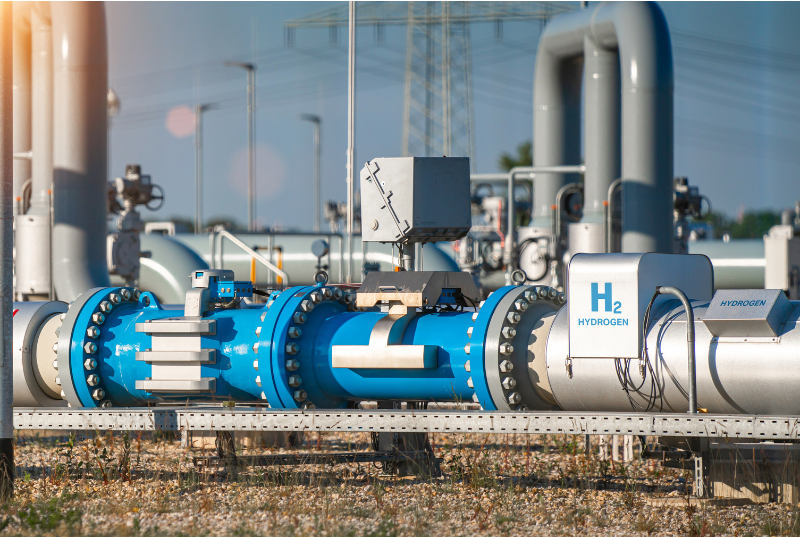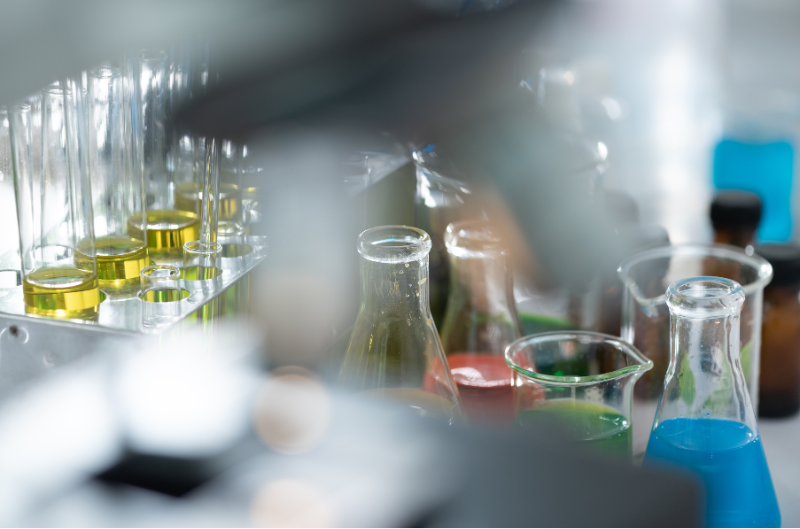Introduction
Renewable chemicals, also known as bio-based chemicals or green chemicals, are derived from renewable biomass sources such as plants, algae, or waste materials. These chemicals are gaining prominence due to their potential to reduce reliance on fossil fuels, lower greenhouse gas emissions, and contribute to sustainable development. Renewable chemicals slowly replace fossil-derived chemicals and can often be one-for-one identical replacement materials, or in some cases, new and improved versions of the chemicals they replace.
Types of Renewable Chemicals
Biofuels: Renewable chemicals can include biofuels such as ethanol, biodiesel, and biogas produced from biomass feedstocks.
Biopolymers: These are renewable alternatives to traditional plastics. They include polymers like polylactic acid (PLA), polyhydroxyalkanoates (PHA), and bio-based polyethylene.
Platform Chemicals: These are intermediate chemicals derived from biomass that can be further processed into various products. Examples include bio-based acids, alcohols, and ketones.
Specialty Chemicals: Renewable chemicals also include specialty chemicals used in various industries, such as cosmetics, pharmaceuticals, and agriculture. Examples include bio-based solvents, surfactants, and lubricants.
Production Methods
There are several methods of producing renewable chemicals, each with its own processes and technologies. These methods leverage renewable biomass sources to create a wide range of chemical products. Here are the primary methods of producing renewable chemicals:
Fermentation
Biochemical Fermentation: Microorganisms such as bacteria, yeast, or fungi are used to ferment sugars derived from biomass into various chemicals. This method is commonly used to produce biofuels like ethanol and butanol, as well as organic acids like lactic acid and citric acid.
Microbial Conversion: Specialized microorganisms are engineered or selected to produce specific chemicals through fermentation processes. Examples include the production of bio-based polymers like polyhydroxyalkanoates (PHA) using microbial fermentation.
Biocatalysis
Enzymatic Conversion: Enzymes derived from biological sources are used as catalysts to convert biomass components into valuable chemicals. This method is used in processes such as hydrolysis (breaking down biomass into sugars), esterification (producing esters), and transesterification (converting triglycerides into biodiesel).
Metabolic Engineering: Genetic engineering techniques are employed to modify metabolic pathways in microorganisms, plants, or algae to produce specific chemicals or intermediates. This approach is used to enhance the production of bio-based compounds like biofuels, amino acids, and specialty chemicals.
Thermochemical Conversion
Pyrolysis: Biomass is subjected to high temperatures in absence of oxygen to produce bio-oil, biochar, and gases like syngas. Bio-oil can be further processed into chemicals and fuels.
Gasification: Biomass is converted into syngas (a mixture of carbon monoxide and hydrogen) through partial oxidation or steam reforming. Syngas can be used as a feedstock for producing chemicals such as methanol, ammonia, and Fischer-Tropsch products.
Hydrothermal Processing: Biomass is treated with hot, pressurized water or steam to produce bio-oil, biochar, and aqueous solutions containing chemicals like organic acids and sugars.
Chemical Synthesis
Catalytic Conversion: Catalysts are used to convert biomass-derived intermediates, such as syngas, bio-oil, or platform chemicals, into desired products. Examples include Fischer-Tropsch synthesis for producing liquid hydrocarbons, and catalytic hydrogenation for converting furans into alcohols.
Chemical Reactions: Various chemical reactions are employed to transform biomass-derived compounds into renewable chemicals, including esterification, hydrogenation, dehydration, and polymerization processes.
Electrochemical Conversion
Electrolysis: Electricity is used to split water or other compounds to generate hydrogen or oxygen, which can be used as feedstocks or reactants for producing renewable chemicals. Electrochemical methods are also used to convert CO2 into value-added chemicals like formic acid, methanol, and ethylene.
These methods can be combined or integrated into biorefinery concepts to maximize the utilization of biomass resources and produce diverse renewable chemicals and bio-based products. Integration of these processes often involves optimizing resource efficiency, minimizing waste, and creating value from various biomass fractions.

Benefits of Renewable Chemicals
Environmental Sustainability: Renewable chemicals help reduce greenhouse gas emissions, conserve fossil fuel resources, and promote circular economy practices.
Diversification of Feedstocks: By using various biomass sources, renewable chemicals reduce dependency on limited fossil fuel reserves and provide alternatives for energy and chemical production.
Market Opportunities: Growing demand for sustainable products and regulatory support for bio-based industries create opportunities for businesses in the renewable chemicals sector.
Technological Innovation: Advances in biotechnology, catalysis, and process optimization drive the development of new and improved renewable chemical production methods.
Challenges and Opportunities
Cost Competitiveness: The cost of production remains a challenge compared to conventional petrochemicals, but ongoing research aims to improve efficiency and reduce costs.
Scale-Up and Infrastructure: Scaling up renewable chemical production and establishing infrastructure for biomass sourcing, processing, and distribution requires investment and coordination.
Regulatory Framework: Regulations and standards governing renewable chemicals’ production, certification, and market access influence industry growth and competitiveness.
Conclusion
Renewable chemicals offer many benefits that contribute to sustainability and environmental protection. They have a reduced carbon footprint compared to traditional fossil-based chemicals, leading to lower greenhouse gas emissions and helping mitigate climate change. Renewable chemicals promote resource conservation by utilizing renewable resources that can be replenished, reduce dependency on finite fossil resources, and enable the recycling and reuse of materials. Overall, the adoption of renewable chemicals aligns with sustainable development goals and fosters a more environmentally friendly and resilient industrial sector.
About Lee Enterprises Consulting
Lee Enterprises Consulting has over 180 experts that can help navigate your bioeconomy needs. If you need assistance with your renewable chemicals project or related matters, please contact us.
